I adore Dungeons and Dragons. Sure enough, it has earned a particular place in history, with both avid fans and avid opponents, including some (I'll say it outright) misguided individuals who seem to think that it is some kind of cult. Regardless, D&D has become a great monolith within the Fantasy genre and has had a profound impact on a large number of people.
Furthermore, the nature of the game raises some interesting questions about identity. The way in which you play the game is to create and then inhabit a character, who is not you, and yet in many ways is. Given my fascination with D&D, Identity and MBTI more specifically, I began thinking about how they might interact.
Thus, I had an idea to take several of the 4th edition classes and look at the archetypes they represent and then analyse them in terms of MBTI, covering one class for each of the 16 types. I attempted to cover as many of the iconic classes as possible, and as I said I am looking at certain stereotypes within these classes, for as any D&D player will know, your character is not summarised by their class.
One of the things I found most interesting about writing this was the fact that I felt absolutely no need to squeeze or manipulate, the types seemed to readily gel with the class to which I assigned them.
So, without further ado, let us take a look at the classes.
Analysts
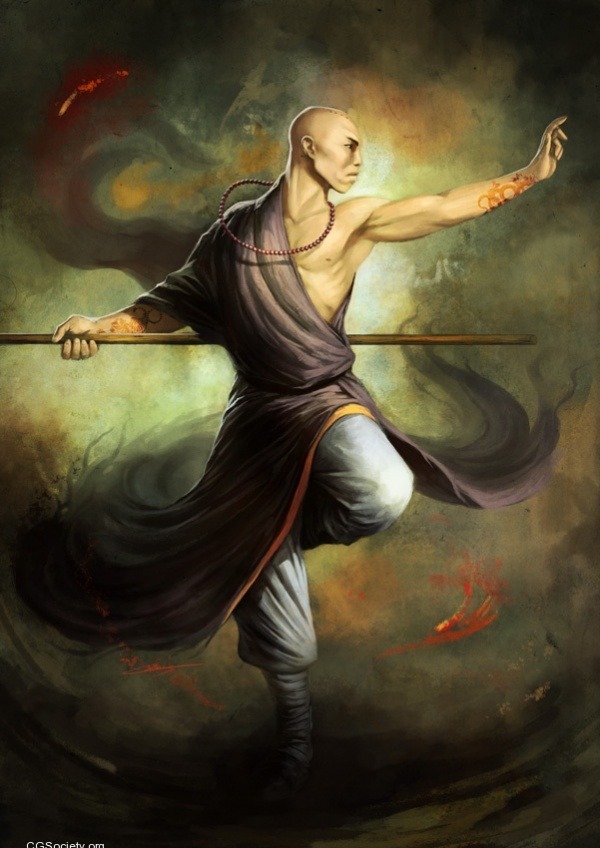 |
| Image posted by Fallen-Fighter |
INTJ (The Strategist) - The Monk
The primary function of the INTJ is Introverted Intuition, focusing on gathering understanding through overall patterns and symbols. In the same manner, the Monk is an intently introspective class, who increases their proficiency within their class through seeking inner truths within themselves. They use mantras, meditations and other kinds of symbology to guide them on their path, though also rely on their own inner visions and innate understandings. Furthermore, they seek to establish an organised system through which they can understand the world, though this is done in a personal manner, with the universal truths reached through an individual encounter. Monks also attempt to impose an organised structure of belief onto the external world, no matter how much chaos may surround them, able to rationalise even chaos. They are largely rational, though this does not render them unemotional, seeing reality as a project to be understood, thus matching the Extroverted Thinking element of this type. Monks are focused on the virtues and values which they seek to uphold, with these being internally balanced. They determine the worth of that which they encounter based on its underlying truth as it links to their introspective journey. Monks can often seem cold and distant, so ultimately devoted to their strict regime, which keeps them in their monasteries far from the “real” world. However, they do have depth of feeling, they simply fail to express it verbally or openly, though it can be seen in their actions. Finally, they are aware of their surroundings in such a way as they are able to respond quickly to stimuli, as demonstrable by their fighting ability and supreme reflexes.
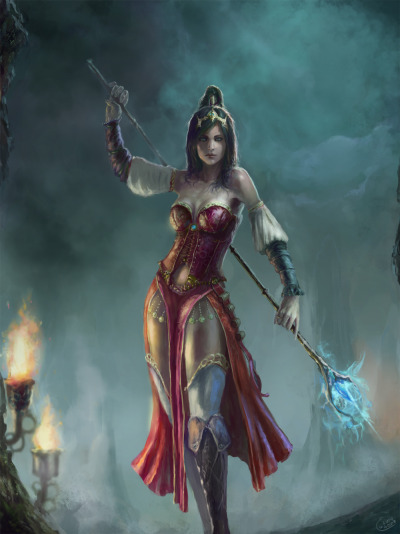 |
| Image posted by Adedrizils |
INTP (The Architect) - The Wizard
A Wizard is constantly seeking
to understand the world in which they live, trying to comprehend the magical
elements and organise them into an academic system. In this sense, they are
primarily based in Introverted Thinking, for they are constantly examining
small pieces of a much larger puzzle (each individual spell is one fragment of
the whole of magic) and testing it to see just how it relates to the wider
system. However, they do not always engage with magic in a strictly rational
manner, sometimes having to relax their overt rationality and instead opt for a
more relaxed and free-flowing interaction. Wizards need to be able to notice
patterns and trends whilst examining the great complex problem that is magic,
when attempting to uncover more, they need to be able to entertain multiple
trains of thought. In this way, magic can also become a game. Every experience
for a wizard is a chance to learn and they are constantly comparing the now to
past experiences and allows them to begin forming an expectation of what is to
happen in the future. This is largely empirical and is used by the wizard to
conduct experiments and allow them to then plan how to continue with their
arcane investigations. Their devotion to advancement and magical progression
often leads wizards to hold in their emotions in order to allow a greater
degree of progress. They wish to create an environment of good natured
competition and harmony, to allow collaboration to produce increased
understanding to be attained. However, this harmony also enables the wizard to
retreat and then return to the group as needed.
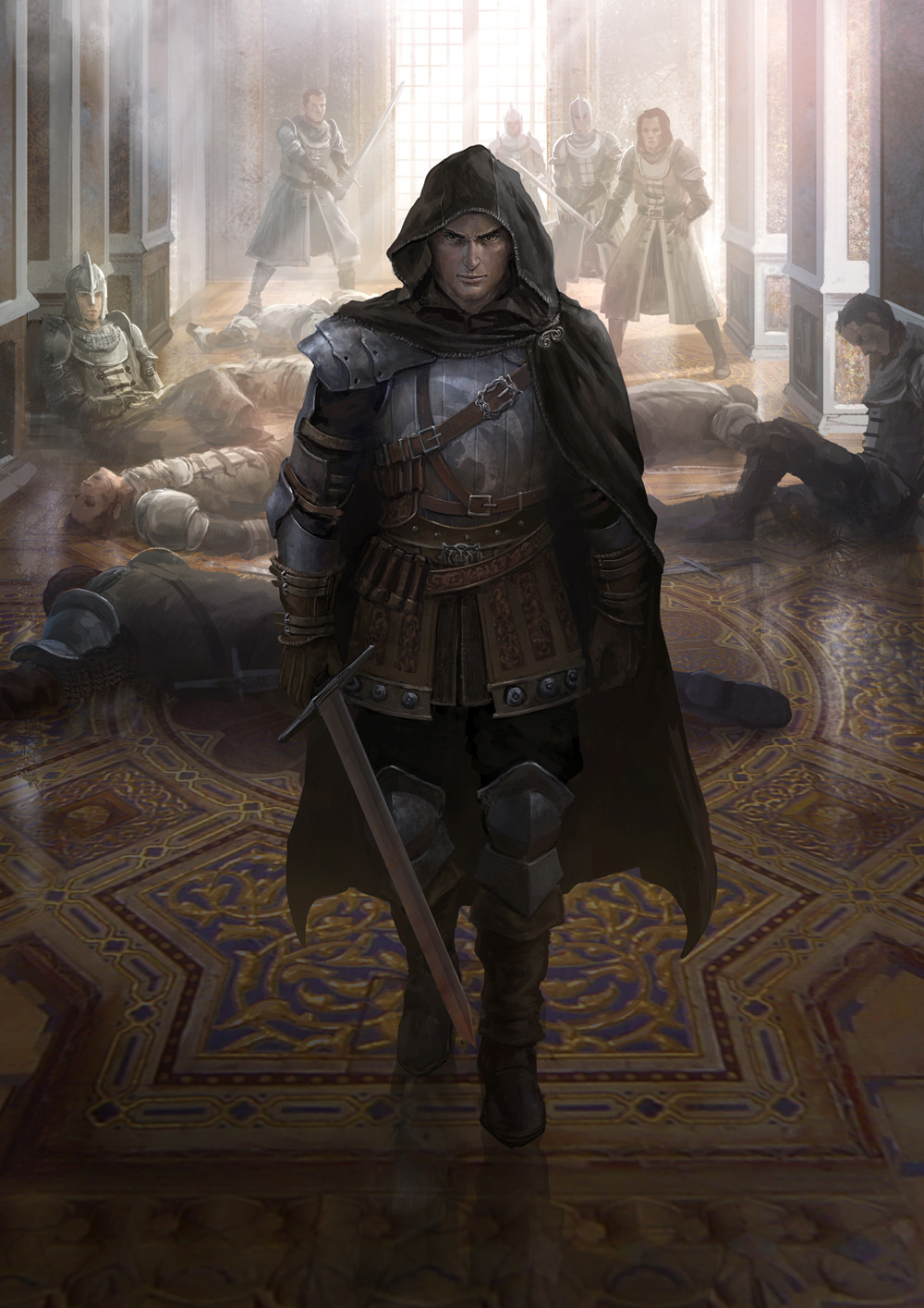 |
| Image posted by Little Dose of Inspiration |
ENTJ (The Commander) - The Avenger
Avengers exist for a single
reason: to hunt down the enemies of their God. They serve divine beings,
ultimately beyond the ken of mortals who have their own plans for the moral
world and they share this plan almost completely. Avengers see the world as
being in a state in which it should not be. They see it as fallen away from the
vision they have of it, the vision of their God. Thus, they seek to impose
their ideas upon the outside world, through slaying one of heretical foes at a
time. In order to see this plan reach fruition, the Avenger must be able to
combine as many ideas and clues as possible in order to look into the future
through their secondary function of Introverted Intuition. They must deal both
in the abstract and in the practical if their holy vision is to be fulfilled.
However, the Avenger cannot always deal with grand schemes and overarching
plans, they must deal with immediate situations to overcome present obstacles. They
are expected to defeat the enemies of their God, those who stand in their way,
thus they require an awareness of the physical world. The emotions of the
Avenger are rarely expressed outwardly, instead expressed in quiet gestures.
Should one attempt to encourage them to verbally express their feelings, the
Avenger would express great conviction, bordering on the melodramatic. Thus, they
mostly keep to themselves, drawing strength enough from their convictions.
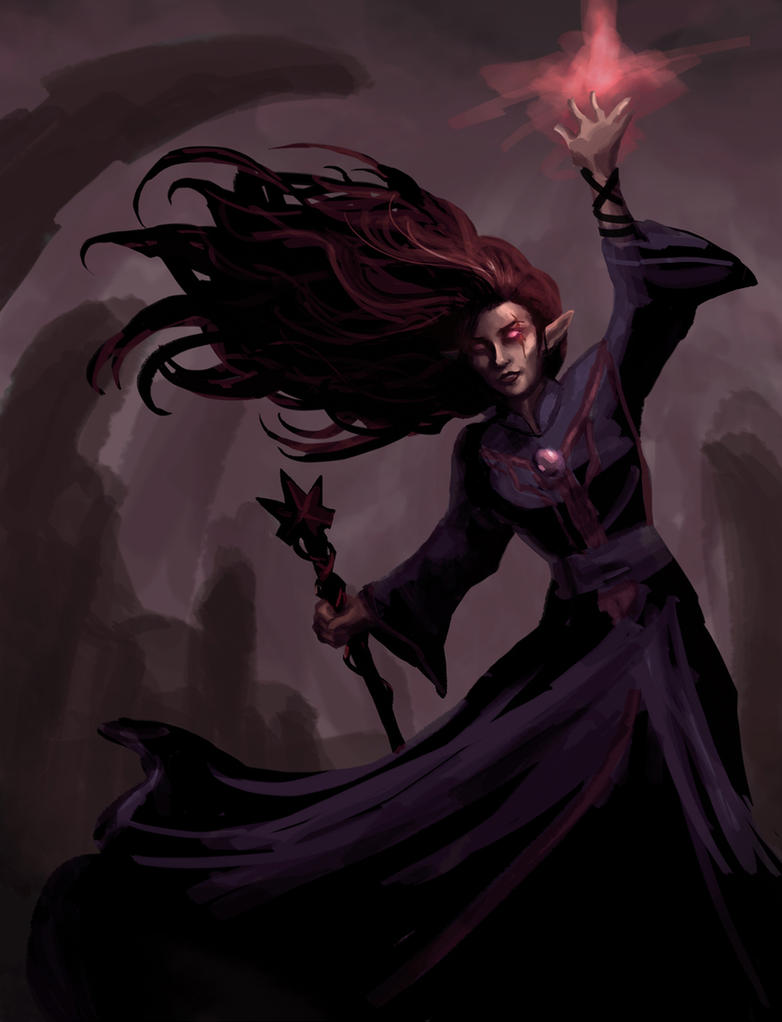 |
| Image by Scrawny Squall |
ENTP (The Inventor) - The Warlock
The Inventor is unique and focused
on making connections, likewise the Warlock’s art is just that, an art. They do
not master the arcane through discipline and academia, but instead through
intuition and through force of will and personality. Their powers are
individual in nature, granted by the relationships they form with beings and
creatures beyond the ken of mortals. Existing outside of the usual norm,
Warlocks challenge the status quo, they raise questions and are always able to
argue against another’s view, serving as devils advocates (such a pun). Their
precise ability to deconstruct an argument and turn it on its head is an
indication of keen mental abilities, though it is often not used to further the
creation of their own belief structures, as their spontaneous drive often overpowers
it. The Warlock uses their emotions to channel their powers and thus they are
able to express themselves and form emotional connections to others easily if
they so choose. Though they deal with dark forces, it is not impossible for
their more emotional and harmonious, good-natured side to bloom, especially in
Warlock heroes. Finally, the Introverted Sensing element of the Inventor acts
to counterbalance the Warlock’s desire to rebel, for whilst they consistently
question the norms and proclamations given by society, they rarely chose to
reject them all, often choosing to obey in many situations.
Diplomats
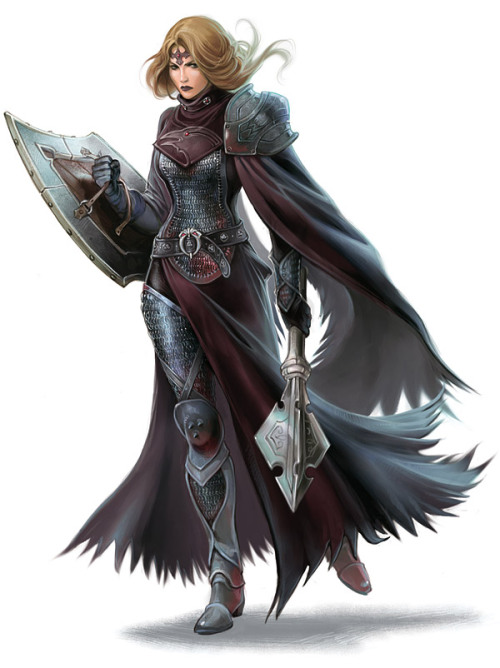 |
| Image posted by Armor Done Right |
INFJ (The Counsellor) - The Cleric
More than any other type
(excluding, perhaps, INTJs), Counsellors are aware of the unconscious processes
and often unseen influences which go on inside of each individual. Clerics too
require this kind of insight into others, this almost supernatural affinity for
understanding and clarity when it comes to those around them. Though they work
within a belief system, the Cleric’s potency for understanding allows them to
deal with individuals, rather than with placeholders to be dealt with
dogmatically. Each individual needs something slightly different and the Cleric
understands this, led by their Introverted Intuition, which also deals with
their faith, allowing them to interface with these complicated and theological
concepts with greater ease than most. Clerics are emotionally aware people and
they possess an exceptional depth of feeling, though they also consider others,
with their emotional focus oriented outwards, thus creating a divide between
the desire to express themselves and the willingness to allow others the
freedom from their own expression. Clerics rarely express their own emotional
difficulties, and if they do it is only to a select few. Instead, they are more
concerned with the feelings of others. When engaged in thought, the Cleric is
likely to retreat from others, allowing themselves the time and space to
logically organise their inner world, which is largely formed from visions, convictions,
ideas and feelings, all of which can lead to chaos if they are not somehow
controlled. This Introverted Thinking is most clearly demonstrated in the
Cleric’s need to meditate and pray. Though they ultimately live in a world of
ideas and ideals, Clerics are able to appreciate the real and the pragmatic,
though this is the area in which they perhaps least excel. They enjoy home
comforts and have a great appreciation for the little things life is able to
offer them. However, the Cleric is far more at home with the less defined areas
of existence, in the realm of ideas and feelings, of people and faith.
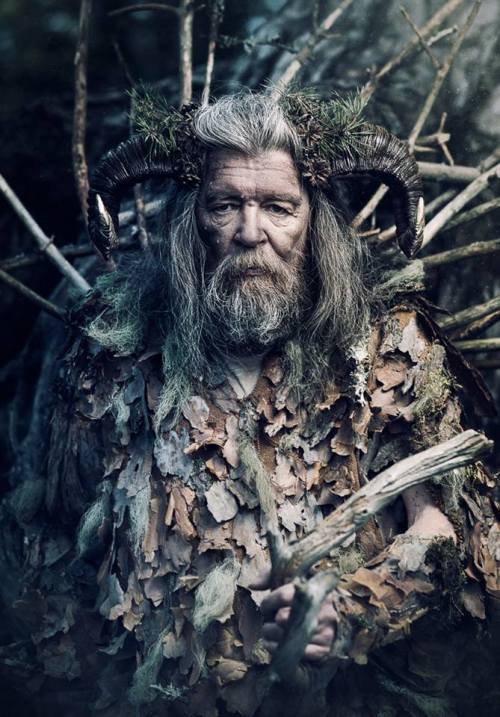 |
| Image posted by Lady Mantheniel |
INFP (The Idealist) - The Druid
Idealists are, fundamentally,
pulled away from the world and towards the ideal and whilst some might consider
this to put them at odds with a nature oriented class, one must recall that
Druids act both as guardians of nature and emissaries to the spirit world. Ultimately,
they see the power of nature as something deeply personal, which enhances their
individual inner world, but which is also excellently expressed and thus
communicable, which is exceptionally important for a Diplomatic type. Value for
a Druid is something which is judged in comparison to their inner ideals, which
are based around the virtues provided by nature, embracing both elements of
harmony and competition. Druids are able to understand and express the
complexity of the natural and spiritual worlds, able to embrace both the
serenity and ferocity present within nature. Every facet of the spiritual leads
into newer facets, for the spiritual explorations of the Druid are endless.
When observing nature, the Druid does so in a very personal and intimate way,
allowing them to use their senses as a route into memory, drawing them towards
an inner harmony, often considered to be a central part of both the Idealist
and the Druid. Finally, Druids do turn their attention to the outside world,
especially when they need to protect their own environments and restore their
inner vision of what the world should be like. More often than not, however,
Druids are willing to let the world deal with its own problems, especially
beyond their immediate environments. They prefer to guide than overpower.
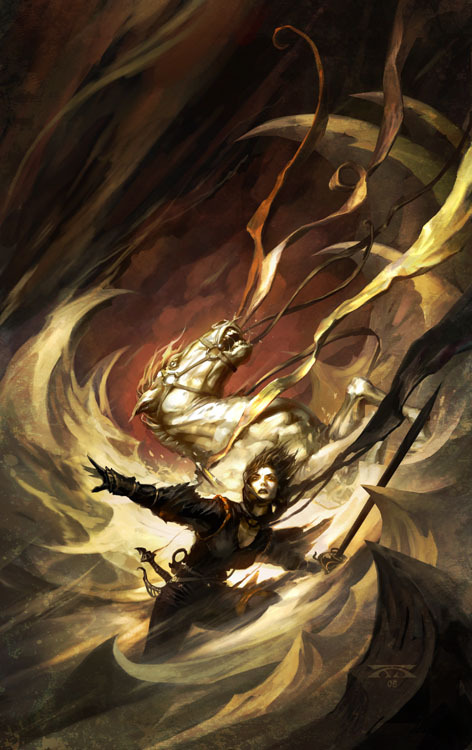 |
| Image posted by Swords And Sorcerers |
ENFJ (The Giver) - The Ardent
The power of the Ardent is
emotion and in the same way the Giver’s primary function is Extraverted Feeling.
Their primary role is to bolster and empower those around them through acting
as a supernatural caregiver, literally manipulating and uplifting the feelings
of their comrades in order to lead them forwards. This emotional fluency is not
solely positive however, for the Ardent is able to turn the emotions of their
enemies against them, just as any ENFJ knows exactly what to say to upset
somebody else, though they ultimately wish to spread positivity and promote
harmony. Ardents can experience the emotions of others as well as express their
own, they pull emotionally energy into themselves from external sources,
finding great strength, but also weakness, in other people. When it comes to
understanding, Ardents use emotion as a gateway to conceptual thought and
process things within themselves, led by an inner vision, an ideal which they
wish to see expressed in the world. Importantly, whilst an Ardent might live
primarily in a world of feelings and abstract ideas, they remain grounded in
the physical world and are able to tie their more conceptual side into the
every day. Whilst they can be cold and logical, this style is only ever used if
its implementation and results are supported by that which feeling produces.
Rationality can be a useful tool, but Ardents deal with people, who they
understand emotionally, rather than rationally.
![Pulled myself out of my art slump with this portrait of my ranger, Idryd! I dunno what it is about the salads, but I love them so. :B
[Submitted by kisskicker]](http://38.media.tumblr.com/dc5a2fbf0c94d5919c5327bd931e37bb/tumblr_n82ezjMU4a1tsmq13o1_1280.jpg) |
| Image posted by Guild Wars 2 |
ENFP (The Champion) - The Ranger
A ranger lives in a world of sensory information, the wild, this much is true, though their major focus is on upon that which is, but upon the abstract connections and potentials which exist within the natural world. All of nature is interlinked and the ranger understands this well enough and seeks to understand it further. They have a huge respect for the natural world but also know how to exploit it to their advantage in ways that those not native to it cannot even begin to fathom. Rangers seek understanding of themselves through the natural world and their connection to it, especially those who fight side-by-side with a beast companion. A Ranger’s convictions and ideals are often their own and whilst they are able to greatly connect with those who share them, they often do not seek to promote them in others, at least not with exceptional further. Mostly, Rangers are content to live the way they do, firm in their own beliefs. However, this general trend is coupled with a seemingly contradictory desire to promote respectful use and harmonious interaction with the natural world, thus there is an element of a desire to change the world in which they live and to be able to share their lifestyle with others. Being in the natural environment for so long, the Ranger is forced to learn by trial and error, comparing current experience to memories.
Sentinels
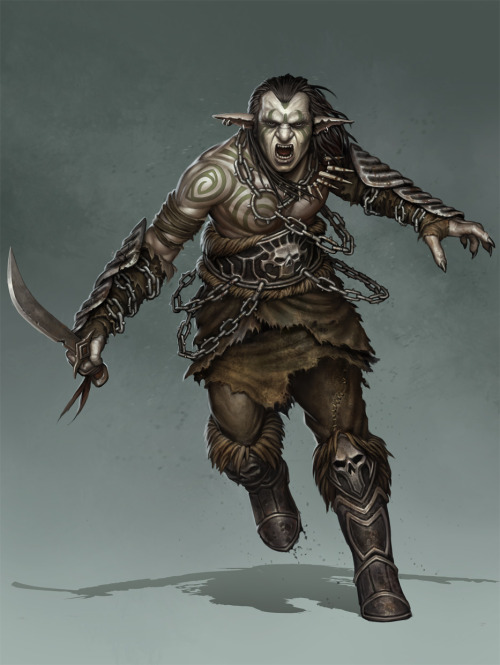 |
| Image posted by The Tygre |
ISTJ (The Guardian) - The Fighter
Guardians are firm
traditionalists and in the same vein, Fighters rely on discipline, practice and
training in often ancient, or at least established, styles of fighting. They
are hugely based within trial and error, only really able to learn and art like
fighting through practice and training. It is hardly something that theoretical
experience alone can teach. The fighter seeks to use their skills and their
understandings in order to fight for something. Naturally, this leads to the
imposition of their will and desire on the outer world through the promoting of
a cause and lending their martial strength to it. For the Fighter, achieving a
goal is often a case of progressing towards it, one clearly-defined step (or
battle) at a time. Their power based in the physical world, Fighters are
practically minded. Whilst able to feel deep and powerful emotions, just as any
type, Fighters, who are often soldiers and thus deal with death more regularly
than most, are able to contain those emotions within themselves and only
express them through gestures and actions rather than with words. A Fighter may
jest about his feelings, though honest expression is rarely through lengthy conversation,
unless they are experiencing a period of great strength. Fighters love facts
and, whilst they must be able to have at least some ability to deal with
potentials and possibilities, especially when it comes to battle tactics, they
often find it difficult to look beyond what is immediately present, though this
does make them unfailingly practical.
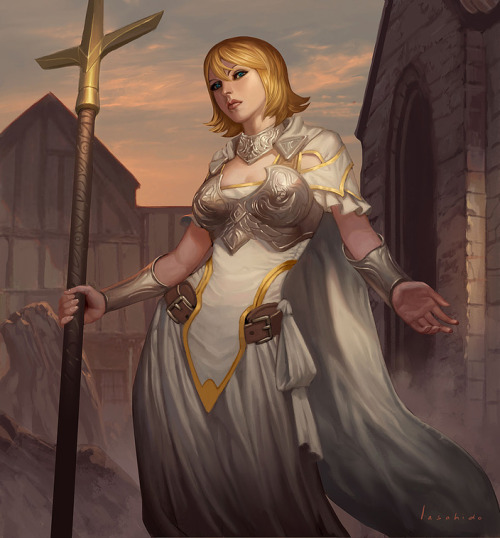 |
| Image posted by SciFi-Fantasy-Horror |
ISFJ (The Protector) - The Invoker
An Invoker may devote a great deal of their time to promoting a particular vision of what the world should be like, though much of the work towards this is done inside themselves, for they must first come to terms with their ideas about the world in which they live. They primarily deal in the general ideas, principles or platonic forms, the shape and nature of which are given to them by the Gods to whom they are sworn, allowing them to then develop codes and axioms through which they can approach the outer world. Their approach to this world is one of emotion, in which they use their own passion to ignite a fire within the hearts of those around them in order to promote their particular vision of the world. However, their promoting of this world view is not done without a constant questioning of the inner ideals they possess. Though their dedication to their Deity is great, for Protectors are extremely loyal, they do consistently question the best way in which to realise their will. To this goal, they are tireless. However, it is possible for the Invoker to become ungrounded by their devotion to their ideals and begin to slip away from the immediate situation, which is a snare they might seek to avoid.
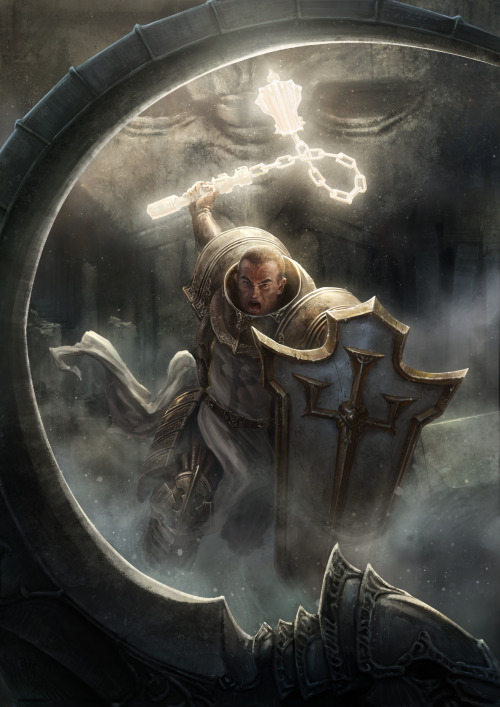 |
| Image posted by Mere Recorder |
ESTJ (The Enforcer) - The Paladin
The Paladin is often closely united with tradition and the established order, through the form of religious organisations and because of their involvement with these orders they have certain religious principles drilled into them. Through the implementation of these principles, the Paladin is able to make difficult and impersonal decisions quickly and remain dedicated to their conclusions. Their motivation is to seek truth and that which is right, able to clearly define their objectives (which are often prescribed by their Deity) and the steps which must be taken to work toward it. They deal with internal concepts in the form of virtues and religious principles, though this Introverted Sensing is held in check by the Extroverted Thinking which dominates the Enforcer type, yet it does give them a love for discipline. In spite of this discipline and typically black and white way of seeing the world, the Paladin is able to consider things beyond the immediate and think about possibilities, though this is a skill to which they do not automatically end themselves, for they are far more intently focused on matters of fact and how those facts and situations can be manipulated. Ever stoic, a Paladin does not lend themselves to expression of emotion, their feelings kept in check by their radical discipline.
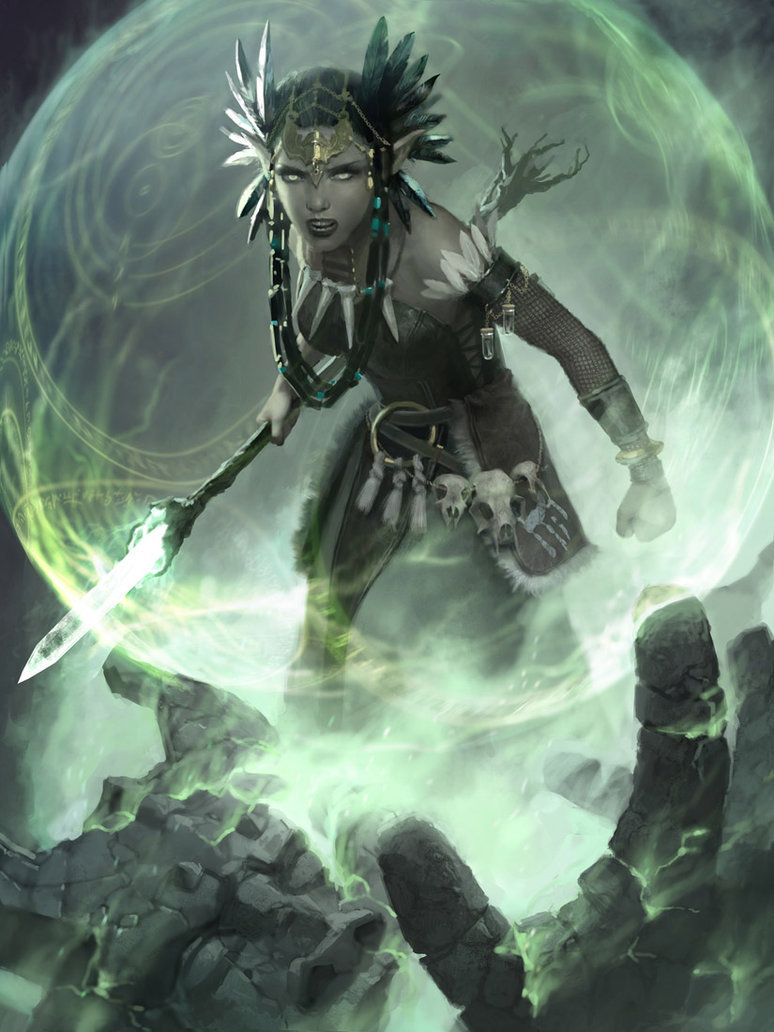 |
| Image posted by Swords and Sorcerers |
ESFJ (The Provider) - The Barbarian
Barbarians live in a world of
raw feeling and sensation, ultimately driven by their emotions. They are drawn
to the physical and express themselves with regard to the outer world and the
people they find there. Often, they are warm and caring people, even if their
sense of humour can be on the morbid side, on occasion. It is through
harnessing these emotions that the Barbarian is able to make a difference in
the world, through taming their inner fire and only allowing themselves to
release control at the opportune moment: the Barbarian’s Rage is an
archetypical example of Extroverted Feeling. All Barbarian interactions with
the world seek to feed or quench this inner fire. They are certainly able to
refract and stew on their experiences and, when feeling inevitably becomes involved,
things can become blown out of proportion. Providers wear their hearts on their
sleeve. Barbarians also display some of the more relaxed approaches of
Extraverted Intuition, for one must remember that, as a primal class,
Barbarians are tied to the spiritual and to the realm beyond the mortal.
However, driven as they are by emotional responses to the physical world, the
Barbarian’s ability to deal with the more abstract parts of their philosophy is
perhaps not quite as deep as to allow them to fully grasp it. This is no real
bother, however, for such systems need followers who are oriented more to the
physical world, rather than the Druids, whose focus is on the spiritual. So
focused on expression and emotion, nothing upsets the Barbarian more than the
thought of having to deal with those whose systems are more rigid and who do
not express themselves openly.
Explorers
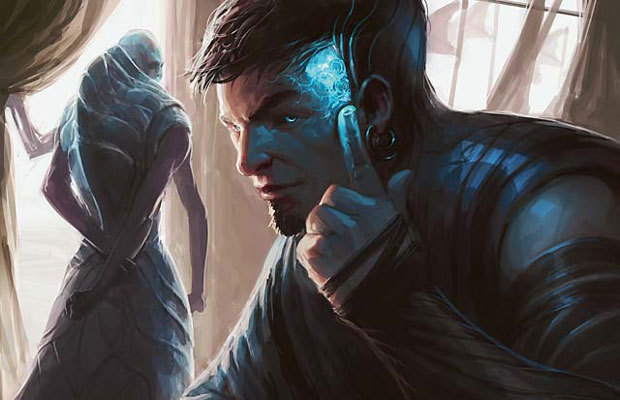 |
| Image posted by Mirage Art |
ISTP (The Crafter) - The Artificer
Analysis and the ability to
deconstruct and reconfigure the arrangement of an argument or an idea is key to
the Crafter and, as inventors (in the non-technical sense) themselves,
Artificers rely on their keen ability to interact with that which they are
working on, precision and dedication being key. Their thinking is Introverted
and thus centred on themselves, and the Artificer is a free spirit at heart, preferring
to be left alone to get on with their own business, to create and invent in the
privacy of their own laboratory. Sensory experience is also of great importance
for the Artificer, for they need to look out at the world and see that which is
lacking and how their inventions could perhaps fill that void. Artificers are
prone to see their work as a puzzle, as a detective story and thus conduct themselves
accordingly. Though their intuition is not the most developed of their
capabilities, Artificers do possess the function of Introverted Intuition,
which allows them to access their gut instincts, though this is not usually
something over which they have much influence or control, instead allowing such
instincts to come when they come, rather than seeking them out. Both rational
and spontaneous, the Artificer has little trouble expressing their emotions,
though their emotional part is almost entirely subservient to their more
rational and sensing elements.
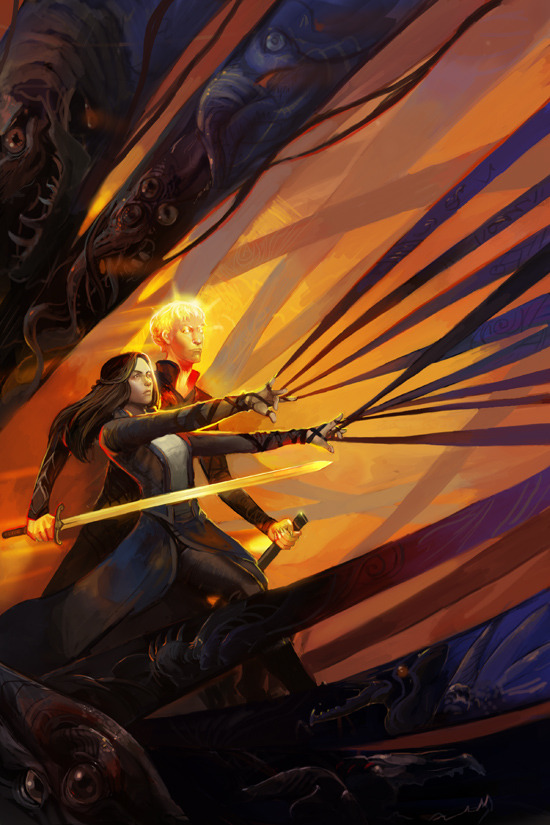 |
| Image posted by Swords and Sorcerers |
ISFP (The Composer) - The Psion
Dominated by Introverted
Feeling, the Composer’s focus is on the self, though this is ultimately not a
selfish attitude, for they seek a clarity of emotional understanding the focus
of which is largely independent of the outside world (though not entirely).
Comparatively, Psions live very much within their own minds and their powers
are stimulated largely from their inner values and understandings. It is no
surprise that they match this type when one considers that the growth of a
Psion is not the same as that of a Wizard, in that it is not abstract and
academic but more of a personal journey within the self in order to unlock
inner, psionic power. Both are thus dominated by Introverted Feeling. Their
powers, however, are not so self-contained, for the very mark of a Psion is one
who can take their inner power and express it into the physical world. This is
not done emotionally however, though the Psion does possess a strong awareness
of their environment, specifically oriented towards how they can manipulate it.
Though their power comes from the mind and the inner world, they enjoy and take
great pleasure in the outer world through Extroverted Sensing. At the back of
their inner world are the wild and free concepts of psionic power, and whilst
Psions possess the ability to take great advantage of their gut instinct, this
instinct is relatively undeveloped and their ability to deal with the abstract
can often become strained by the implications of their powers and abilities.
Thus, many Psions must devote a great deal of time to developing this
self-reflection. Finally, Psions do possess an ability to use Extroverted
Thinking in an attempt to impose an organising structure upon the world.
However, as their minor function, it is not always possible to do this with
great precision, though this is not to suggest that a Psion is unable to deal
with and seek to impose such structures.
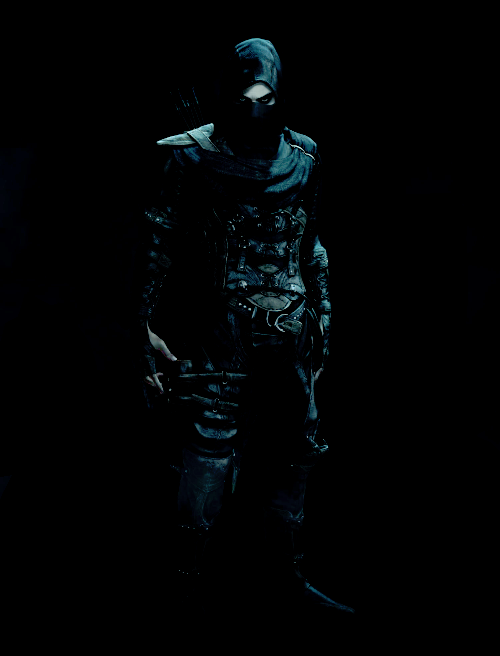 |
| Image posted by Daaud |
ESTP (The Adventurer) - The Rogue
Of all the classes, Rogues
rely most on their sensory experiences and input in order to survive, though
the means of Extroverted Sensing. They do not possess the strength of Fighters
or the magical abilities of the Wizard and yet they are able to handle
themselves in the vast majority of situations based solely upon their own wit
and perception. A Rogue is entirely immersed in the moment and through the use
of their senses, they come to understand their environment and manipulate it to
their advantage. This ability does not begin and end with the physical
environment, however, for the Rogue is also exceptionally adept at reading
other people and noticing consistencies within behaviour patterns, as well as
being able to monitor such things within themselves, giving them a cunning edge
when it comes to deception. Though they rely on impulse and their senses,
Rogues retain a strong analytic ability, able to focus on the details of a
situation and how the details relate to the bigger picture. Through this
Introverted Thinking function, the Rogue is able to formulate plans of action,
though they do ultimately rely on their senses and thus their plans can change
very quickly. The feelings of a rogue are often used for their own pleasure
and, whilst this does not rule out their having deep relationships with others,
the typical rogue is far more interested in hedonism and pleasure, this being
due to their fluency in sensation. They are also able to use emotions in a
manipulative manner, giving them the ability to influence others through their
feelings. Rogues are, however, often not fluent with sincere feeling and thus
this can be their undoing. The Rogue also retains the ability to deal with
abstract concepts and ideas, which can help them in producing original ideas.
Ultimately, however, they are more acquainted with the actual than the
potential.
 |
| Image posted by Swords and Sorcerers |
ESFP (The Performer) - The Bard
A type associated with those
who live life to the full and who often see life as a constant celebration, it
is appropriate to consider the Bard to be of the Performer type. The Bard is
primarily focused on the here and now and this means that they can often become
lost in their own performances, able to inhabit the music in a very immersive
manner. They focus upon allowing others to share in their own experiences, and
experience is fundamentally important for the Bard, for they consistently seek out
that which they have not yet experienced and dream of feeling something truly
novel. The Bard needs to experience new things, need to experience the now, for
this is exactly how they find the material for their next composition. Bards
are also exceptionally emotional, though they often struggle to express their
feelings beyond their performances, which take solitude and introspection to
organise and prepare for. A Bard will deal with their emotions in private, thus
demonstrating Introverted Feeling, though this does not prevent them from
expressing themselves indirectly, through their work. Bards are often viewed as
being deeply poetic types, the kind of person one might be able to take
advantage of and this can often be the case, though they do possess the ability
to ward off such manipulations through transforming their inner expressions
into a plan of action, though this is ability is not as strong as they might
like. Finally, Bards deal with some complicated ideas within their works and
they thus possess the ability to look out into the expanse of possibilities and
observe the connections between various concepts. However, they are ultimately
devoted to expression and thus often do not seek to develop this ability.
I know this entry has been exceedingly long, so huge thanks for reading!
you can reach me at mzucc043@uottawa.ca
ReplyDeleteMy earlier comment didn't post. It read:
ReplyDelete1. Great work.
2. How did you know all of these classes, this is better than the non-standard versions elsewhere on the net. i want to go deeper.
3. I'm thinking it would be good to do a book on it, what do you say?
Very good piece. I'm an INTP and agree with wizard except that there is no logic with magic. It's possibly the closest fit though.
ReplyDeletePretty good. Better than some of the other similar articles I've seen :) I've been reading up on a few of these and while none seem to put me with my favourite class, this one was interesting....
ReplyDeleteI'm ENFP and *love* to play rogues. I love to talk my way in & out of things, and love to work all the angles and come up with a great scheme. Sneaking is also fun ;) But reading this reminded me of a time a while back when I was talking about this stuff with a friend, and he said "if you were a character, you would be a rogue, but would probably wish you could be a ranger" and I laughed cos it's not far off. I love nature,and love the independence and self-sufficiency I see in the ranger class. It's boss to be that independent. So that was a pretty good catch on your part.
Funny thing with INTPs though, is I know a few and none ever play wizards. Respectively, they like rogues (cos "being an a-hole is fun"), beefcake tanks, and bards. Aside from the a-hole guy (who is actually super sweet irl), the characters reflect other things the like - the tank guy loves to work out and really prides himself on his muscles, and the bard guy loves to act - and yeah, both are definitely INTPs :P